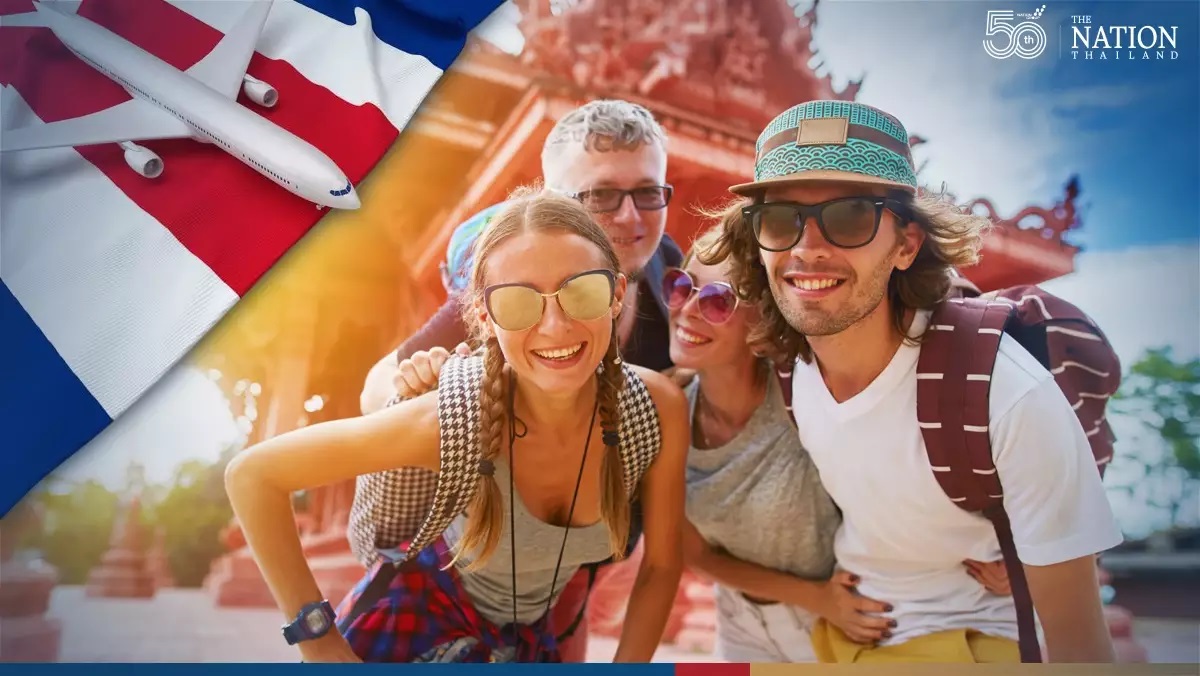
Now, after various reopening experiments, the Southeast Asian nation is welcoming fully vaccinated travelers from 63 approved countries, including the United States, to visit quarantine-free under a program called Test and Go. Children under 12 traveling with parents don't need to be vaccinated to enter.
The 15 months without international tourism gave Thai people the opportunity to have the country to themselves, said Bangkok local Tasara Taksinapan, who works in the travel industry.
"I went to temples around Thailand I wouldn't normally go to because they were touristy and crowded," Taksinapan said.
As tourism has not fully returned, "it would be the perfect time to visit Thailand right now while everything's still fresh and not too busy," he added.
Here's what travelers need to know to plan a trip to Thailand.
- What you need to enter Thailand
Through the Test and Go program, there are a few steps vaccinated travelers need to take before heading to Thailand. They need to purchase an insurance policy that covers at least $50,000 in coronavirus treatment, and they must book a one-night package at a government-approved hotel that includes private transportation and a PCR test on arrival.
"Just as an example, the Mandarin Oriental Bangkok is one of those hotels, so our clients can stay in the most luxurious and comfortable hotels while getting over jet lag and waiting for the result," Desiree Overhage, an adviser for BookHuman.Travel, said in an email.
A warning: Double-check that the room purchase includes transportation and testing. Some hotels and websites have deceived Test and Go travelers, resulting in visitors being forced to buy a new package or get sent home.
Travelers will have to upload their documents, including their vaccination proof and accommodations, to the Thailand Pass system, which provides a QR code.
Marion Walsh Hedouin, a spokesperson for Minor Hotels, which operates the Anantara and Avani hotels in Thailand, said the Thailand Pass can be a challenge for travelers who apply at the last minute. Because of the current spike in demand, it may take seven days to get the code.
Before boarding, passengers must present to the airline proof of a negative coronavirus test taken within 72 hours of departure. Upon arrival, they will present the Thailand Pass QR code and then be taken via the pre-arranged transportation to the property for their on-site PCR test.
Visitors must then wait for a negative result at the hotel, and once that clears, they are free to go. They will receive an antigen test kit to use on day six or seven of the trip and will log the result into the MorChana tracing app.
Foreigners who aren't fully vaccinated are not eligible for Test and Go. Instead, they must follow rules for the Alternative Quarantine program and stay in a pre-booked, government-approved hotel for a 10-day quarantine after arrival, among other restrictions.
As with everything in the pandemic, restrictions evolve. "By the time someone travels, whether that's December or February, we anticipate that things may change as well - hopefully for the better," said Jeffrey Krevitt, a spokesman for Inside Travel Group, which operates InsideAsia Tours.
- What to know about restrictions
Once in Thailand, travelers won't be asked to show their vaccination status at tourism sites and businesses, but there are some changes compared to visiting before the pandemic.
"There are not many restrictions," Taksinapan said. "It's about 80 percent back to normal."
Everyone in Thailand is required to wear a mask indoors and outdoors in public settings. Tourists are already drawing attention for breaking the rule, which comes with a fine of about $600.
According to the Tourism Authority of Thailand (TAT), entertainment venues such as bars and karaoke spots remain closed. But most businesses and activities in the country's "Blue Zone" destinations, such as Bangkok and Phuket, have reopened with normal hours; restaurants, markets, theaters, scuba diving, massage facilities and spas are among the places and activities that are operating.
"You can go out and about the city, catch a taxi, go to a museum and restaurant, travel to Chiang Mai," Hedouin said. "The only thing which might be different than perhaps other countries right now is when you're outdoors you must wear a mask."
As for the country's famed street food, "it's definitely here," Taksinapan said. "There's maybe even more than before."
- Where to get a coronavirus test before returning home
At this time, anyone aged 2 and older must take a coronavirus test to fly into the United States, regardless of vaccination status. Vaccinated Americans have a three-day window to get their test before their flight, and unvaccinated travelers must get their test within one day of their flight. Those who have recovered from a case of covid-19 in the past 90 days can provide a note from a licensed health-care provider.
Taksinapan said travelers shouldn't have trouble finding a coronavirus test in Thailand. Rapid and PCR tests that fulfill U.S. testing requirements can be arranged at local hospitals, and they range in price from 1,500 Thai baht (about $45) to upwards of 4,000 baht ($120). Some hotels in the country offer special packages that include coronavirus testing.
Alternatively, travelers can pack an approved self-test, like this BinaxNOW kit, ahead of time.